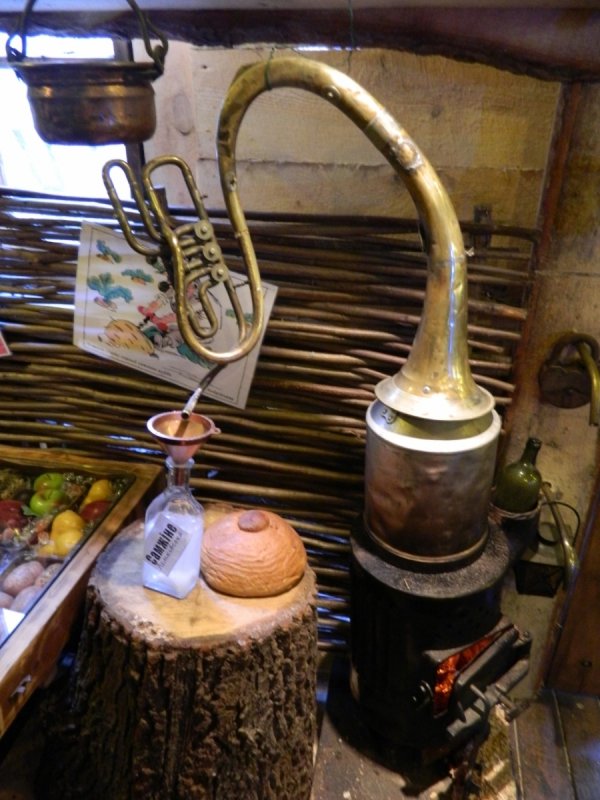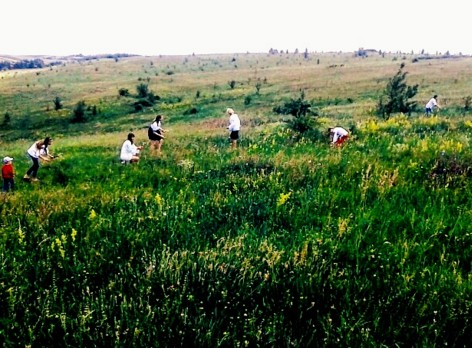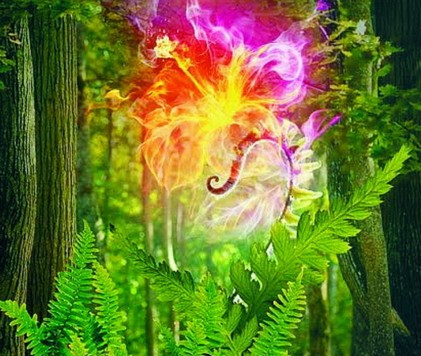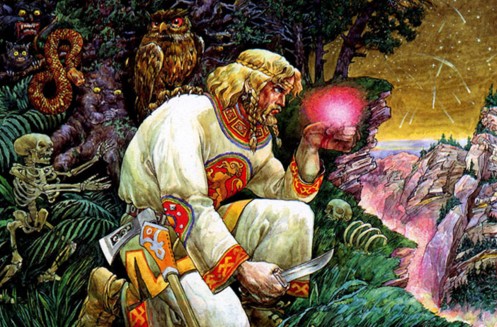На Закарпатті існувала традиція збирати в день Ivana Kupala a variety of medicinal potions. The medicinal herbs collected on this day were attributed a special magical and healing power. Even from a scientific point of view, this custom is very rational. It was during the end of June-beginning of July in Transcarpathia that the plant reached its peak of flowering.
Church and the secular authorities for a long time tried to persecute all those who collected the potion for Ivan Kupala. Violators of the ban were punished with whipping.
Subsequently, the Church tried to Christianize this tradition. It was under the influence of Christianity that the custom of consecrating the potion collected for Ivan Kupala in the Church arose.
На Закарпатті цілющі трави і коріння на Івана Купала йшли збирати перед сходом сонця. Вважалось, що якщо на травах вже висохла dew, then they lose their healing properties. It was recommended to collect potions in a remote forest area, it was considered the most pure and healing. People who collected potions undressed and performed their work naked, so that the herbs would not lose their power.
in East areas Boiko plucked for the holiday of Ivan Kupala, herbs and plants were not only considered medicinal, but also believed that they were able to transmit the power of a potion that was prepared at other times.
On the Western Boykivshchyna medicinal plants plants were harvested mainly in the Russian week, most often in the Russian week Friday, although it was a common opinion to consider medicinal plants collected in other holidays (Ivan Kupala, spas) or non-holidays.
On Lemko the collected Kupala potion was tied with hazel branches (sometimes with branches of fruit trees) in a sheaf and carried to be consecrated near the Church. They kept it until the next celebration of Ivan Kupala. They used it for medicinal “plots” of people or animals.
The people believed that the care and the cultivation of medicinal herbs do mermaid Mavka and other mythical characters.
The superstitious imagination of the highlanders of Boykovschina, in turn, vimalovuvala universal fantastic face to all diseases and misfortunes in the form of a magic drug that grows in the deep mountains, or grass from the borders of the nine fields, plucked unnoticed by an outsider at dawn by Ivan Kupala with the words:”I will Tear at the expense when it is necessary.”
In addition to the treatment of diseases, kupalskoe the potion was used by girls for divination and was used to prevent natural disasters. So, during the hurricane Kupala potion was burned in the oven.
In addition, Kupala potion considered a means of increasing the yield. There was a custom to stick consecrated woodlands twigs were inserted into the ground where vegetable crops were grown.
In Boikivshchyna, Hutsulshchyna and Lemko, it was the custom to “lure” (decorate) the house Midsummer potion.
So, in the Hutsul region on the day before Ivan Kupala obkladyvali, obtikuvali house potion, and not only the house – in the gardens they poke hazel; it was believed that it protects the crop from worms.
In Transcarpathia on Ivan Kupala people collected rotten cream, pears and it is on John the Baptist laid them in barrels, cooked vodka. We believed that it would be better this way.
The belief is extremely interesting about fern blooming on the night before Ivan Kupala.

According to the beliefs that existed in the Transcarpathian, in the night from 06 to 07 July (old style) blooms fern. Togo who was lucky enough to get hold of a fern flower, according to popular beliefs, could to possess spirits, to command the earth and water, to find treasures, to become invisible and so on.
The Hutsuls believed that the flower the fern can only be found at midnight and the one who succeeds will get Paradise on land.
In General, the holiday of Ivan Kupala is one of the most bright and cheerful in the national calendar and always will arouse the interest of tourists and travelers who were lucky enough to visit Transcarpathia.







